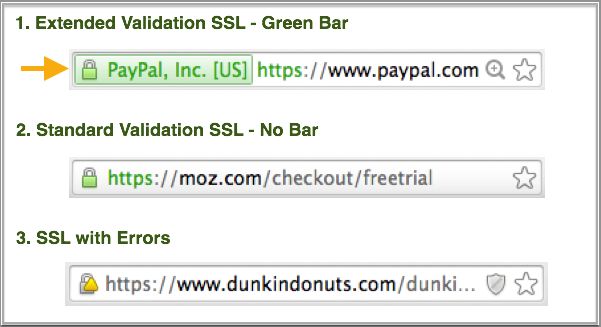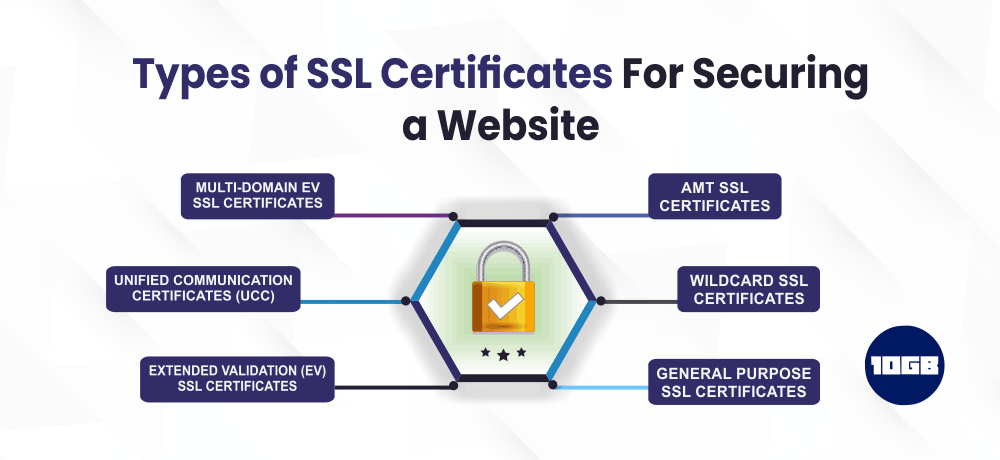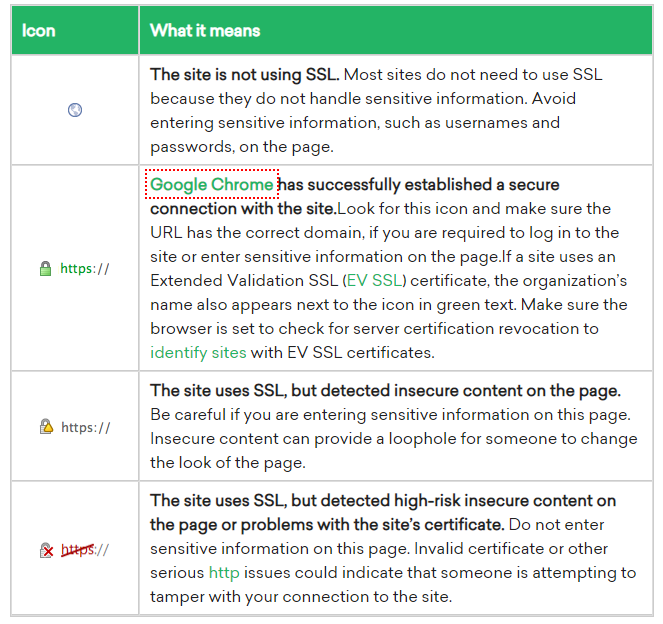As cybercrime is increasing with each passing day, you need to be informed of different types of SSL certificates available in the market and which one will be apt for your business site.
If your website doesn’t have an SSL certificate installed, there will be unencrypted data transmission over the network. This will result in an increased chance of data theft as threat actors may perform brute force attacks.
Table of Contents
Website Security Indicator Using an SSL Certificate
Also Read:
Moving forward let’s see different types of SSL certificates.
Different Types of SSL Certificates
Now as you know the consequence of not having an SSL certificate, let’s take a look at types of SSL certificates:
They can be categorized on the basis of:
- Validation level
- Number of secured domains/subdomains
On Validation Levels
- Domain Validation Certificates
- Organization Validated Certificates
- Extended Validated Certificates
Under Number of Secured Domains/hostnames
- Single Domain
- Wildcard
- Multi-domain
Types of SSL Certificates by Validation Level
Digital certificates are issued by trusted parties, named certificate authorities. The certificates are issued to companies and organizations only after their identities have been validated.
Aim of SSL: Assurance of encrypted data transfer on the network
1. Domain Validation
- Validation Level
Least level of validation
- How it is verified
The Certificate Authority or CA just confirms that the organization has control over that particular domain.
- Mode of verification
Normally done through email. For confirmation, you either make modifications to a DNS record or upload a file offered by the Certificate Authority to the domain. By proving authority over the domain, they will be issued a certificate.
- Time taken
Issuing Domain Validated Certificates ranges from a few minutes to few hours.
- Validation expense
Least expensive of the three validation certificates as there is no human involved in issuing this certificate.
- Indicator
A browser with a secured HTTPS connection.
2. Organization Validated SSL Certificates
- Validation Level
Medium level of validation
- How it is verified
The CA reviews the organization that has requested for issuing a certificate. Then, they contact the organization to ensure that it is authenticated.
- Mode of verification
The Certificate Authority not only verifies the ownership of the domain but also verifies the organization information filled in the certificate like name, city, and country.
- Time taken
It takes few days to register the Organization Validated SSL Certificates.
- Validation expense
The expense for issuing this certificate is more than domain validation as humans are involved in the whole process.
- Indicator
Display company information in certificate details.
3. Extended Validation Certificate
- Validation Level
Most strict level
- How it is verified
Certificate Authority examines the ownership, organization information, physical location, and legal existence (actual presence) of the company. It further verifies if the organization is conscious of the SSL certificate application and then passes it.

- Mode of verification
Documents are needed as proof to certify the identity of the company alongside several checks
- Time taken
It takes few days to issue Extended Validation Certificate.
- Validation expense
Most expensive of all three validation certificates as several human involvements are required to issue this certificate.
- Indicator
A green address bar with the organization’s name.
Types of SSL Certificates by Number of Domains
Based on the number of domains and subdomains, there are three certificates namely:
1. Single-name SSL Certificates
Secures just one subdomain/hostname.
For instance; If you buy a single-name SSL Certificate for ‘www.xyz.com’, then it can’t be used on the subdomain ‘pay.xyz.com’ and vice-versa.
2. Wildcard SSL Certificates
Secures an unlimited number of subdomains for a single domain.
For instance; If you buy a certificate for ‘www.xyz.com’, it will also secure the subdomains ‘careers.xyz.com’, ‘manage.xyz.com’, etc.
This works for any subdomain.
3. Unified SSL Certificates/Multi-Domain SSL Certificates/SAN Certificates
It lets clients guard up to 100 domains with just one same certificate.
These certificates are particularly designed to safeguard Microsoft Exchange and Office Communications environments.
It shields multiple domains with just one certificate with the help of the SAN extension.
These were the types of SSL Certificates.
How Can I Install an SSL Certificate?
- Host with a dedicated IP address
- Purchase an SSL certificate
- Enable the certificate
- Install the certificate
- Update your website to show HTTPS on the URL.
Conclusion
Hope this article helped you understand the types of SSL Certificates needed for securing a website.
Additionally, we at 10GB Hosting offer Domain Validation, Wildcard SSL, Wildcard SSL and other types of Secure Socket Layer Certificates.




